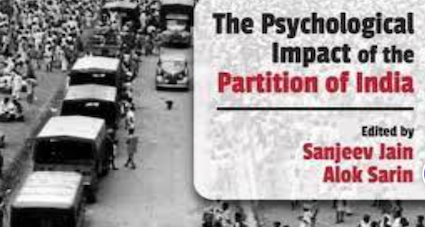What is our understanding of the Partition? The lasting impact of its trauma on those who suffered? A set of doctors—Alok Sarin, Sanjeev Jain and Anirudh Kala—set about exploring the subject moved by stories of their patients.
Unfortunately, there was little on record. But then their research developed through a Nehru Memorial Museum fellowship and a Wellcome Trust grant helped. And a book “The Psychological Impact of the Partition of India”, surfaced.
Partition was a moment when people turned against people; compatriots, neighbours, friends, maiming and killing them in brutal ways.
Why did people go mad? What role did State play into it? For the authors, another important question was what sort of psychiatric care was available? What kind of medical establishments accosted at that time?
The book explores the religious identities, as both the result of community models of health care, where members of a particular community through their welfare activities ended up providing care, employing professionals, all from the same community. They came to the conclusion that even medical services came to be communalized. For example, patients in a mental hospital in Lahore were left without care when the nurses and doctors, principally Hindus, left for India.
The authors note with concern the growing and tragic communalisation of this profession which is meant to transcend the borders or religion and identity.
There is collection of essays which provide connections and parallels with the impact of terrible violence in the former Yugoslavia, Darfur and Muzaffarnagar. They point out, with examples, the everyday acts to which the seed of partition already exists in daily life and the ways in which State is complicit, fomenting divisions in order to control populations.
A detailed account of Mridula Sarabhai’s work with abducted women explores the discomforts and ambivalences that lie at the heart of a feminist certitude.
Sukesha Kamra elaborates on the implications of our failures to confront the demons of Partition, our reluctance to historicise it reinforcing the point made by the editors that confronting partition, and partition violence with honesty, will mean a “rupture of cherished notions that anchor national identity.”
Like all anthologies, this one too is uneven, but it is rare to find an anthology which is not. Nevertheless, it opens up a new area of enquiry.


